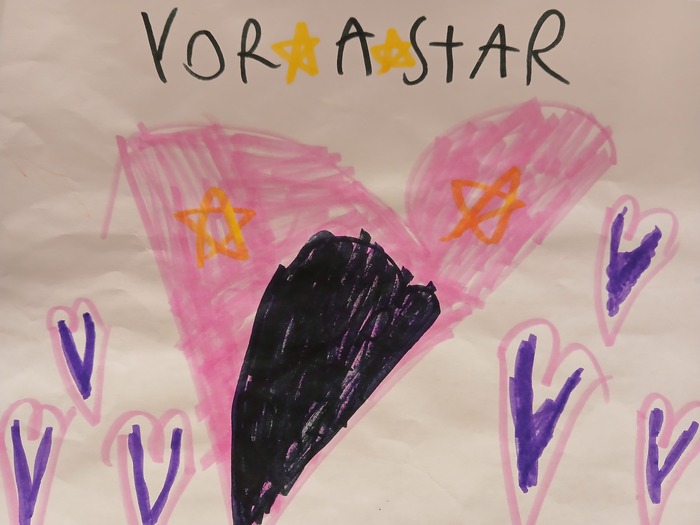People pleasing put me in the ER earlier this year. Over our kids’ fall break, we traveled to visit extended family, only to find that their beautiful home was infested with fleas. And though I’m seriously allergic to flea bites, I did not immediately walk out of that house.
As a result, it took 2 weeks, 2 urgent care visits, multiple medications, and 1 ER evaluation for things to even begin getting better. For days, I couldn’t walk without severe pain. The danger of being a people pleaser became very real to me!
I’ve been keeping my ER bracelet on my bathroom countertop to remind me: People-pleasing is as dangerous as an addiction. Left unresolved, it can wreck your health and even cost you your life.

In hindsight, I should have grabbed the kids and walked outside when I saw the first flea. Sure, it was 8am and I was in PJs and the kids wanted breakfast, but so what? My husband isn’t allergic; he would have packed up our stuff solo.
I could have gotten out with much less damage done. I moved quickly, but not quickly enough. Why didn’t I walk out immediately? Why did I get badly hurt?
- I didn’t realize how bad the reaction could get.
- I wanted to take care of my kids.
- I didn’t want to offend our hosts (aka, I had some people-pleasing going on).
- I learned early on that me being in pain didn’t matter much. (This was the root cause of the people-pleasing behavior!)
People pleasing psychology
Consider this, dear reader: How old were you when you learned that your discomfort, pain, or fear just did not matter much? If you’ve struggled with people-pleasing, you probably learned that at a young age.
We could talk all day about people-pleasing psychology, but for simplicity’s sake, let’s talk about two types of people-pleasers.
The first type is sycophantic; it’s about currying favor with others in order to get more wealth, power, or status. It often involves narcissism and Machiavellianism-level manipulation and it’s very disturbing. As you might expect, I’m not writing for that audience.
Rather, I’m writing this post for the second type of people-pleaser: the one who learned early on that their true self wasn’t acceptable, so they hid that self away.
If you were taught that you were inherently sinful, then the only way for you to be loved was to try hard to be “good” and to conform. As such, your people-pleasing is an attempt to belong, to sidestep shame and guilt, or both.
Your people-pleasing is basically an attempt to spare others the pain of being with the real you. You take discomfort and pain onto yourself, rather than allowing others to feel it. It involves hefty doses of self-sacrifice and self-abandonment.
And yes, you guessed it – there’s trauma at the root of this behavior.
What is the trauma of people pleasers?
While the circumstances vary, the lesson is the same. We have been trained not to prioritize ourselves. We’ve been programmed to do for others – to live in perpetual people-pleasing mode.
We have been trained out of our natural sense of self-preservation. Therein lies the danger of being a people pleaser: loss of access to our inner guidance system. When we don’t have that, we’re easily exploited by others. It’s very convenient for the takers if you forget your power to choose.
So, what is the trauma of people-pleasers? It is the loss of a sense of self – so much so that only other people really matter.
The first time I sat across from a counselor, I spent the entire hour talking about my family of origin – but not in the way you might think. I wasn’t talking about trauma – at least, not directly. Instead, I told this counselor how great each of my family members were.
This is why he’s great, this is why she’s great. This is why they’re all so great! At the time I was 21 or 22, working long hours as a caregiver at L’Arche. My heart was broken, my body was frequently breaking down. But I did not talk about any of that.
I didn’t even initiate the search for a counselor; I went because of my job. L’Arche recommended that every assistant connect with a mentor, so I chose the counselor from a handful of volunteers. So I wasn’t ready to talk about myself; launching a PR campaign for others felt much safer.
This counselor was well-trained; she must have recognized the self-denial at play. But to her credit, she didn’t say so. Instead, she did something much more memorable. At the end of our session, she said, ever so gently, “Maybe next time, we can talk more about you?”
That simple sentence hit me right in the heart. Here was someone who wanted to know what was going on with me. As if I mattered! Can you imagine?!
Here are a few more examples of how the “I don’t matter” mindset shows up in everyday life.
Signs of a people pleaser
1. You are embarrassed by your actual taste in anything from movies to music to books. You stack your library books in such a way as to hide covers from the librarian and fellow patrons.
You turn off your beloved Florence + The Machine or Fleetwood Mac when your husband’s car pulls into the driveway. You believe that Florence and Stevie are goddesses, but what if he doesn’t see it that way?
Having opinions feels risky … but covering up your truths feels increasingly icky too.
2. You dress so as not to make waves. You stand in front of your closet thinking, “What can I wear that’s nice enough not to look sloppy, but not so nice that people will think I’m full of myself or showing off?”
As a result, you choose the same ho-hum pieces over and over, while better items remain unworn. Actually wearing the sparkling party top you bought months ago is a big deal.
3. You frequently apologize to your pet for living your life, as in, “Sorry, kitty, I know that you don’t like it when I talk on the phone and pay attention to anything other than you.”
One of my favorite authors, Dr. Martha Beck, admits to seeking approval so much as to be “… reduced to a nervous wreck because I couldn’t play the piano correctly for my dog.”
4. It takes a real effort for you to say no to sales pitches, even for items and services you don’t want. When you join a gym and they try to rope you into meeting with a personal trainer (even though you have zero interest) saying, “No, thank you” feels like a major victory.
5. You are extra-nice to people you actively dislike, because you have an internal rule that says that it’s not okay to dislike anyone, ever. And if you do dislike someone, it must mean that you’re bad.
Given this belief, you’re desperate to keep your aversions secret. But a result of this overcompensation, these people start seeking you out! Then you realize that you’ve played your part too well and feel bad.
6. You crave the company of people who will tell it like it is. Spending time with forthright friends is like manna for your truth-starved soul. In their presence, you develop a taste for liberation.
7. You’re used to walking around with this energetic broadcast: “If you don’t like me, I am so sorry! I will try to fix myself as soon as possible! Please forgive me for having needs and opinions that differ from yours!”
Contrast that with your aforementioned friends’ energy, which says, “If you don’t like me, that’s fine – you’re entitled to your opinion. But it’s your loss, baby! And either way, I have the right to be myself and to take up space on this earth.”
8. When you feel conflict coming on, the desire to escape is overwhelming. It’s so scary! When your friends start fighting, you duck out and hide in the bathroom.
You’re probably known as the diplomat in your family and friend groups, since you do your best to diffuse conflicts before they start. However, this also means that sometimes you don’t deal with issues and they explode in your face later on.
You’ve learned the hard way that it’s often better to have a messy conversation now than to bottle your emotions and have a furious, exploding-doormat meltdown in five years.
And speaking of anger …
9. You instinctively try to shield other people from your anger. You have a belief that anger is always bad and dangerous, so often you’ll turn anger inward and hurt yourself rather than give voice to your feelings.
Only the people closest to you have *ever* seen you get really upset. And it might have taken decades of trust for you to get there.
10. You seek a group consensus and offer elaborate rationales for your decisions. You feel the need to justify your choices, and you can drive loved ones crazy with over-explanations about why you bought that book or decided to take that day off.
Your most subversive mantra is, “’Because I want to’ is reason enough.”
This list of “signs of a people pleaser” came straight from my life, before I did some serious inner work. Back then, I didn’t feel that I had the right to feelings and needs of my own.
Dear reader, if you, too, were taught not to prioritize yourself – if you were taught to give and give to the point of exhaustion – then deep down you already know the high cost of living this way. Take a pause here, though, and reckon with it.
What has it cost you to be a people-pleaser all of these years? What have you lost? What have you suffered? As I wrote in my book, You Don’t Owe Anyone: “What danger have I courted with my inability to say a direct no? What have I sacrificed on the altar of being too nice?”
For example, I spent one Thanksgiving feeling totally miserable because I people-pleased rather than lived in integrity.
People pleaser examples
One year on Thanksgiving, I looked around a table full of happily feasting family members. But I didn’t want to eat, because of the unease gnawing in the pit of my stomach. Though I’d initially said no to hosting this gathering, I’d let myself be persuaded to host at the last minute.
My husband and I decided to say no due to some safety issues. I communicated that boundary. But then, one of my extended family members presented me with a new set of dish towels featuring deer (my favorite animal), then pleaded with me to reconsider hosting.
As I sat there, holding the thoughtful gift in my hands, I felt a war within. On one hand, I knew that the wiser course was to say thank you, and, I’m not going to host. Just say no! the wiser part of me whispered.
But on the other hand, I doubted myself. They were being so nice all of a sudden! Was I being unreasonable? The thought of saying no now, while holding this thoughtful gift in my hands, made me feel so guilty.
Plus, I knew that me saying no again would cause trouble. There would be drama and pushback and all kinds of unpleasantness. And in that moment I just did not have the energy to face it.
So I caved and said yes, I would host the holiday in my home the next day. I went against myself and my integrity. Essentially, I allowed myself to be bribed.
And that’s why my stomach was all twisted up in knots. That’s why I felt ashamed every time I held those pretty deer towels. I’d gone off track, and I knew it.
Has something like this ever happened to you?
Maybe you’re struggling with parenting your kid; you don’t know whether you’re being too strict or too permissive. You try to make a rule – lights out by 9pm, perhaps – but then when your kid cries and begs, you relent.
Or maybe you set aside time for your creative practice, then your partner begs you to go to an event at the last minute. You go because you don’t want to fight. (Then you never get around to rescheduling your creative time.)
Here’s why “just say no” just doesn’t work in these situations.
First, because in order to say no for real, you need confidence (which literally means, “fidelity to self”). If you don’t have that, the pressure from other people is going to win. You’re going to second-guess and go back on your word.
Next, setting and holding to your boundaries is a skill. You need lessons and a lot of practice before you master it! (It’s like learning to drive; you go around a parking lot before you risk a street, and you drive on lots of streets before you brave a highway.)
Plus, you need relational support. “Just say no” doesn’t work unless you have built in support from healthy people. If you aren’t fully accepted by at least one other person, it’s practically impossible to risk of setting boundaries.
The good news is, it doesn’t have to be this way. You do not have to stay stuck in people pleasing. Since that fateful holiday, I’ve discovered a better way … the way of love for myself first and then others.
When I abandon myself to caretake others, I’m perpetuating injustice. That’s not loving to either of us! As this inscription St. Patrick’s Cathedral reminds us: “There can be no love without justice.”

With that in mind, I’ve learned to hold my boundaries. I’m much less susceptible to guilt trips. Which leads us to …
How to stop people-pleasing without feeling guilty
The feeling that we call guilt drives SO much people-pleasing behavior. It will keeps you trapped and exhausted if you let it. So let’s see if we can untangle this issue!
To my mind, there are two kinds of guilt. First we have Sacred Guilt. This is the guilt you feel when you don’t live by your own values. When you harm yourself or another person, or act unkindly. This guilt is a healthy signal to make amends, and live differently going forward.
In short, Sacred Guilt is to be honored. And if that’s what you’re dealing with, learning a self-forgiveness process is extremely helpful. Here’s how to forgive yourself for past mistakes in a step-by-step guide.
But most often, when coaching clients talk to me about guilt, they are not talking about Sacred Guilt. They are talking about something else.
To quote Christel Nani in her book Sacred Choices:
“What most people call guilt is the uncomfortable feeling that results from the battle between what one is supposed to do and what one wants to do …. It’s the conflict between doing what your spirit wants or doing what people expect you to do.”
This is actually Tension Guilt. And it has a very different remedy than Sacred Guilt. When you’re dealing with Tension Guilt, question the belief that is keeping you stuck.
Let’s say you want to stay home for the holiday, and your extended family wants you to travel. What’s the underlying belief? Perhaps it’s, “I should obey my parents,” or, “A good person goes home for the holidays.”
Really look at see what belief is at the root of the Tension Guilt. Then consider carefully whether or not this belief actually rings true to you on the deepest level.
I used to believe that because I help people, I didn’t have the right to anything of my own. Not my time, not my energy, not my money; any or all of these things could be demanded at any moment.
I would feel I had no choice but to say yes … especially since I also believed hurting another person’s feelings was unacceptable. So sure, I *tried* to have boundaries. I tried to set limits and say no. But the guilt and shame were so strong, saying No didn’t stick.
Often I’d end up apologizing for having said No in the first place, then doing even MORE to compensate for the “sin” of attempting a limit. It’s perfect setup for burnout.
So, how to stop people pleasing without feeling guilty? First, recognize that what you’re feeling isn’t Sacred Guilt – it’s just Tension Guilt. Next, identify and question the underlying belief. Lastly, prepare with practical strategies!
Practical strategies to stop people-pleasing
The next time someone asks you to do something and you’re not sure whether to say yes or no, think about it like this. Usually you go back and forth between what you actually want to do and what the other person wants you to do, right?
That’s the Tension Guilt that we talked about earlier. But what if there’s another way to see it? What if, instead of deciding whether to “be selfish” and do what you want, or to give in and people-please the other person, you asked yourself this *one* question instead?
What relation to life does this request bear?
Put another way: Is this request life-giving, or life-depleting?
Listen as I coach on this topic during the Prioritize You Masterclass; a participant brought up the “deathbed” test, or how to handle the pressure to be the “good girl” in high-stakes situations!
Here’s the full quote from Dr. David Seabury’s classic book The Art of Selfishness:
“No one but yourself knows what you ought to do. You discover it when you no longer fear condemnation. Nothing becomes an obligation merely because someone tells you it is.
This being the case, there is only one way to refuse a request with a clear conscience: decide what relation to life the request bears. Refuse to do what anyone asks if you do it only to please him. Refuse with equal fortitude to endure any situation unless you see it as a cosmic responsibility.”
So let’s say you know that you need to say no. How do you do it?
How to say no for people pleasers
When you are saying no, be clear and concise. Refuse to get into an argument about your reasons for saying no, or justifying your no, or anything like that. Instead, stand firm in the knowledge that you have the right to say yes or no, as you so choose.
Let’s say that you need to say no to someone you’re close to. This person is not going to push the issue, but they’re likely to feel hurt or disappointed. How do you navigate this? Dr. Martha Beck coaches us to respond to the fear itself, not to what they’re actually saying.
For example, let’s say you say no to an invitation, and the person says, “Are you mad at me?” or “Does this mean our friendship is in trouble?” They’re legitimately scared that the No to the invitation means a No to them as a person, or a No to your relationship.
You do not need to overexplain or apologize, but in such cases it’s wise to offer reassurance. Here are some things you can say, with as much warmth and kindness as you can muster: “Hey, friend, it’s okay.” “Honey, I hear you.” “All is well.”
If someone’s just feeling anxious, a heartfelt reassurance can go a long way.
That said, if you are speaking with someone who refuses to hear and respect your clear No, then you are in treacherous territory. And the danger of being a people pleaser is that you won’t accurately assess the level of risk.
According to renowned security expert Gavin de Becker, the refusal to hear No might be the most consequential red flag of all. If you’re talking with someone who can’t respect your No, then you are not safe.
As de Becker writes in his bestselling book The Gift of Fear:
“‘No’ is a word that must never be negotiated, because the person who chooses not to hear it is trying to control you.”
So if you’re saying No clearly and it is not being respected, leave the interaction. End the call, walk out the door, do whatever you need to do – just go.
Purpose as an antidote to people pleasing
It’s also really helpful to have a clear sense of what *you* are here on earth to do. To know *your* particular purpose, your goals, your dreams. When we don’t know what we want and where we’re going, we’re rudderless ships at sea. Better to set a course and go in a direction deliberately!
Put another way: Our brains are “monkey minds,” jumping around unless and until we give them positive direction. If you do not give your brain a good, purposeful job to do, you will have a hard time not falling into the old people-pleasing pattern.
Moment of levity here: Gilmore Girls fans may remember the free-association rant that Lorelai does in Season 7; it’s great example of how our brains bounce around unless we take the reins.
“My brain is a wild jungle full of scary gibberish. I’m writing a letter, I can’t write a letter. I’m wearing a green dress, I wish I was wearing my blue dress, my blue dress is at the cleaners. The Germans wore gray, you wore blue, Casablanca is such a good movie. Casablanca, the White House, Bush. Why don’t I drive a hybrid car? I should really drive a hybrid car. I should really take my bicycle to work. Bicycle, unicycle, unitard, hockey puck, rattlesnake, monkey, monkey, underpants!”
My point is: When you are very clear on what you want in your life – what you’re working toward, and what matters most to you – it gives your brain a much better job than, “How do I make everybody happy?”
Lastly, we must realize that we are also worthy of care … and then act in accordance with that truth. In practical terms, this means that we take ourselves OUT of the “flea house” – whatever form it takes.
Along the way, we will need to face our fear of displeasing others. For example, the folks who owned the “flea house” not only didn’t know that I was allergic, they didn’t grasp how bad the situation really was. So initially, they expected us to continue our stay.
At one point they told our kids to put their bags back in their room. But I said, “No, kids. Keep going. We’re leaving.” There was no way I was going to let my kids stay there and get hurt.
In the end it’s that simple and that complicated: We must become so fiercely on our own side as to say, “No way, I’m not going to let myself stay here and get hurt any longer. ENOUGH already.
Instead, I’m going to get myself someplace safe and heal these wounds. Then I’m going full-out to fulfill my creative dreams. I’m not here to suffer needlessly. I’m meant for more than that.”

“You’re a star.” At least according to my 5 year old.
Are you ready to relearn what you knew when you first came into this world – that you have a right to be here?
Because when you do, everything changes for the better. The whole world opens up. The “impossible” becomes possible, then real. Life gets easier, lighter, freer, and happier.
This is available to you, dear reader. You have choices and options and agency. You are not trapped or hopeless and it is not too late. Here’s a next step to help you reclaim the power that was yours all along.
Enter your email address below to receive the Sacred Circle Exercise and free up at least 260 hours of your precious time this year.
Free Up Time to Pursue Your Purpose with the Sacred Circle exercise!
Share This:
Comments
Related Posts


